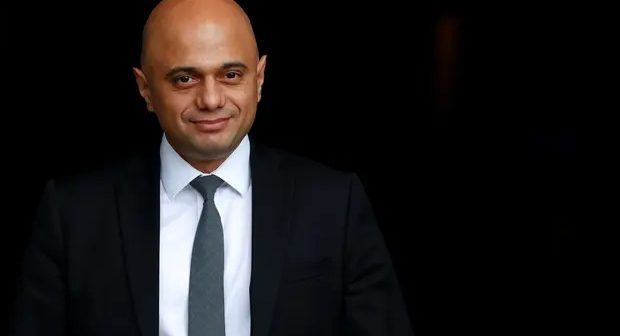Sajid Javid has urged patients stuck on lengthy waiting lists not to go private, insisting “the NHS can manage it,” as he pledged to use his position as the first minority ethnic health secretary to tackle racial disparities in health.
Speaking to the Guardian as he marks 100 days in the post, the health secretary declined to say when the NHS would be able to clear the post-pandemic backlog.
But asked if he would encourage patients to resort to using private healthcare to expedite their treatment, Javid said: “No. That’s always a choice for people that can afford it, and that’s up to them. But it’s not certainly something I would be recommending to anyone.”
He added: “I don’t want a situation where too many more people just stop [using the health service]… because I want them to use the NHS. The NHS can manage it.”
Jon Ashworth, the shadow health secretary, said last week that long waiting lists were in danger of leading to privatisation of the NHS, as patients desert it in favour of private providers.
The Institute for Public Policy Research thinktank recently suggested that eliminating the backlog in cancer care alone could take more than a decade.
The government recently announced a 1 percentage point increase in national insurance contributions, with most of the revenue initially going to the NHS, and switching to social care in later years.
As well as dealing with the legacy of the coronavirus crisis, Javid said he wanted to tackle the inequalities that mean healthy life expectancy is 20 years higher in Richmond-upon-Thames than Blackpool, where he gave a recent speech.
“With Covid, we’ve all seen that it’s had a different effect on people depending on perhaps where they live, what their income was, what their race was in some cases. Lots of people have said Covid is a great leveller but it is nothing of the sort – it is anything but that.”
He gave the example of the pulse oximeters that were used to assess patients’ oxygen levels and determine whether they should receive treatment in hospital. “They were giving the wrong readings, generally, for anyone that had dark skin – because they were designed for caucasians,” he said.
“As a result, you were less likely to end up on oxygen if you were black or brown, because the reading was just wrong.”
Asked if that could partly explain higher death rates among minority ethnic people, he said: “I think it’s a reason,” though suggested that BAME people were also more likely to be in frontline jobs such as transport or health workers.
Javid, who is the son of a Pakistani bus driver, said his background gave him a new perspective. “As the first health secretary from an ethnic minority background I think I feel able to say things about racial disparities that others couldn’t say,” he said.
He said tackling these inequalities would mean a cross-government effort and that he was examining effective ways of tackling tobacco and alcohol use, and obesity. “I want to find out the best ways to do it,” he said.
He praised the sugar tax levied on sweetened drinks in 2018, saying it had encouraged manufacturers to reformulate their products – though said he was not considering specific new tax proposals. But asked whether he would consider tax as a way of tackling health disparities, he said, “Instinctively I don’t like it.”
Javid raised the question of whether companies target advertising for unhealthy products such as junk food at less affluent areas, where health outcomes tend to be poorer.
“Just picking Blackpool as an example, I wonder whether companies – tobacco companies, certain food companies – whether they target certain areas more themselves. I mean anecdotally, when I was in Blackpool, in the driving rain, going around, it just seems there’s a lot more adverts on stuff like alcohol everywhere than I notice in Bromsgrove, for example.”
Javid said that the health and social care bill currently before parliament includes limits on junk food advertising to children, but dropped a hint that he would like to go further. “I’m almost one step ahead of that,” he said.
But Javid’s claim to be ready to tackle health disparities came as the Health Foundation thinktank and the Association of Directors of Public Health (ADPH) pointed out in a new analysis that the public health grant had been cut by 24% in real terms per capita since 2015-16 – equivalent to £43 a head in Blackpool, for example.
Jim McManus, interim director of the ADPH, said: “Investing in local public health is critical to levelling up, preparing for the future threats and building a more prevention-focused health and care system.”
Javid praised the healthcare workers who have been on the frontline during the pandemic. He said: “When it comes to GPs, they’ve done a brilliant job and continue to work incredibly hard, and if we want them to meet more people, which I do, offer more face to face appointments, then I have got to work with them in partnership and see what we can do.
“I’ve asked both GP leaders and also my department to think about what more we can do.”
Javid suggested he was considering a new “covenant” for healthcare workers, along the lines of those the government has signed with the police and members of the military, setting out the government’s responsibilities to support them.
“I am just thinking about what more we can do in law to support health and social care workers,” he said.
Asked whether there could be more serious penalties for those who attack health workers, Javid said: “You could. One thing I did for police and emergency workers was to increase the penalties. I will think about what I can do.”
Source: The Guardian

